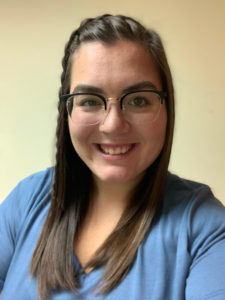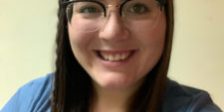
Kelsy Tody, Patient Financial Advocate
Medicaid 101
Written by Kelsey Tody, Patient Financial Advocate
The world of healthcare is one that we are all immersed in, yet so few of us truly understand. We visit an emergency room or make an appointment for our child, skimming the pages to be in and out as quickly as possible and sign our names. Done, right? Not quite. That’s just the beginning.
Then the bill comes, and we wonder how twenty minutes in the waiting room, fifteen in the exam room, and some quick-fire information from our doctor costs us hundreds of dollars. There are those fortunate enough to have access to insurance through their jobs, or at least wealthy enough to cover the costs – but what about the rest of society? The single mother working as a server to provide for her kids, with no access to private insurance; or the college student without a parent’s insurance. People such as these, and endless others, can choose Medicaid – a light shining through the darkness of healthcare.
Medicaid is federally and state funded public health insurance providing coverage to 63.9 million Americans, as of January 2020 enrollment. It provides critical access to comprehensive, cost-effective care to eligible low-income adults, children, pregnant women, elderly adults and people with disabilities. While it is jointly funded and managed at both the federal and state level, states can adjust the benefits included in coverage. For example, country-wide benefits include coverage for both inpatient and outpatient hospital services, physician services, laboratory and x-ray services, and home health services, among others. Some other benefits that may differ from state to state are for coverage for prescription drugs, case management, physical therapy, and occupational therapy (Medicaid).
In Wisconsin, we have BadgerCare and Wisconsin Medicaid. BadgerCare is a health insurance program available to Wisconsin children whose household income falls below 300% of the federal poverty level. Others who may be eligible include those listed above, such as pregnant women, parents and caretakers, young adults who are leaving foster care when they turn 18, farmers and self-employed people, and low-income adults with no dependent children. Wisconsin Medicaid pays for medical services for Wisconsin residents who are living in poverty, elderly, blind, or disabled (Paying for Health Care in Wisconsin).
NorthLakes Community Clinic is a federally qualified health center serving 13 communities in Wisconsin. It is our mission to respond to the health care needs of our communities with an integrated array of quality services and actively remove barriers to care. Within our clinics, we have people working endlessly to help push through the financial barrier to the care they need. While we offer our own assistance and programs to help lower the burden of the cost of medical care, we are even more pleased to serve those in our communities with Medicaid health insurance when other medical providers may not.
Xristobal Ramirez is one of the Community Health Workers (CHW) at NorthLakes Community Clinic who works directly with patients inquiring about or applying for Medicaid. He points out that, “Medicaid not only provides a low cost option for those of limited income, but is an important social safety net for those experiencing joblessness, layoffs, or reduced hours at work.” This is something that a great number of the population is currently struggling with amid the COVID-19 crisis. His use of the safety net metaphor is powerful as it points out how Medicaid opens its arms to so many people making up the various demographics of America.
Healthcare does not always have to be confusing and intimidating, which happens to be another great benefit of Medicaid. You can even apply online; but we’re still here to help. Brenda Spurlock, another one of our CHWs, added, “We can assist patients with the application by phone, online, and in-person (when permitted). Don’t hesitate to reach out to a CHW to help navigate accessing health care insurance and information.” Affordable healthcare is vital to the overall health and well-being of our society, and Medicaid is here to help.
If you are interested in scheduling a virtual visit with a Community Health Worker to get your health insurance questions answered, please call the clinic at 888.834.4551.






